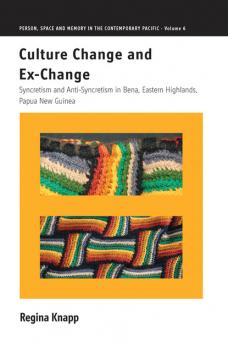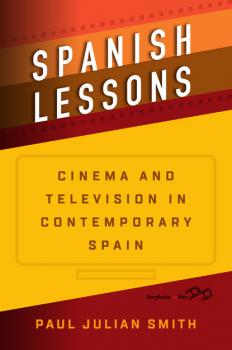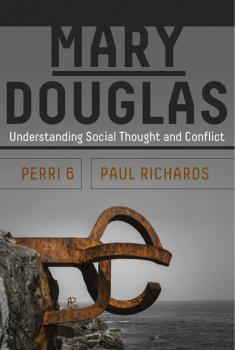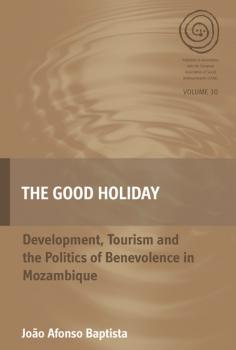ТОП просматриваемых книг сайта:
Культурология
Различные книги в жанре Культурология, доступные для чтения и скачиванияАннотация
Travel and Representation is a timely volume of essays that explores and re-examines the various convergences between literature, art, photography, television, cinema and travel. The essays do so in a way that appreciates the entanglement of representations and travel at a juncture in theoretical work that recognizes the limits of representation, things that lie outside of representation and the continuing power of representation. The emphasis is on the myriad ways travelers/scholars employ representation in their writing/analyses as they re-think the intersections between travelers, fields of representation, imagination, emotions and corporeal experiences in the past, the present and the future.
Аннотация
In this compelling study of the children of serial migrants, Danau Tanu argues that the international schools they attend promote an ideology of being “international” that is Eurocentric. Despite the cosmopolitan rhetoric, hierarchies of race, culture and class shape popularity, friendships and romance on campus. By going back to high school for a year, Tanu befriended transnational youth, often called “Third Culture Kids”, to present their struggles with identity, belonging and internalized racism in their own words. The result is the first engaging, anthropological critique of the way Western-style cosmopolitanism is institutionalized as cultural capital to reproduce global socio-cultural inequalities.
Аннотация
How is cultural change perceived and performed by members of the Bena Bena language group, who live in the Eastern Highlands of Papua New Guinea? In her analysis, Knapp draws upon existing bodies of work on ‘culture change’, ‘exchange’ and ‘person’ in Melanesia but brings them together in a new way by conjoining traditional models with theoretical approaches of the new Melanesian ethnography and with collaborative, reflexive and reverse anthropology.
Аннотация
Though unjustly neglected by English-language audiences, Spanish film and television not only represent a remarkably influential and vibrant cultural industry; they are also a fertile site of innovation in the production of “transmedia” works that bridge narrative forms. In Spanish Lessons , Paul Julian Smith provides an engaging exploration of visual culture in an era of collapsing genre boundaries, accelerating technological change, and political-economic tumult. Whether generating new insights into the work of key figures like Pedro Almodóvar, comparing media depictions of Spain’s economic woes, or giving long-overdue critical attention to quality television series, Smith’s book is a consistently lively and accessible cultural investigation.
Аннотация
Drawing on ethnographic inquiry and the anthropological literature on doubt and atheism, this volume explores people's reluctance to pursue religion. The contributors capture the experiences of godless people and examine their perspectives on the role of religion in their personal and public lives. In doing so, the volume contributes to a critical understanding of the processes of disengagement from religion and reveals the challenges and paradoxes that godless people face.
Аннотация
Why do people turn to personal connections to get things done? Exploring the role of favors in social welfare systems in postwar, postsocialist Bosnia and Herzegovina, this volume provides a new theoretical angle on links between ambiguity and power. It demonstrates that favors were not an instrumental tactic of survival, nor a way to reproduce oneself as a moral person. Instead, favors enabled the insertion of personal compassion into the heart of the organization of welfare. Managing Ambiguity follows how neoliberal insistence on local community, flexibility, and self-responsibility was translated into clientelist modes of relating and back, and how this fostered a specific mode of power.
Fertility, Conjuncture, Difference - Группа авторов
Fertility, Reproduction and Sexuality: Social and Cultural PerspectivesАннотация
In the last forty years anthropologists have made major contributions to understanding the heterogeneity of reproductive trends and processes underlying them. Fertility transition, rather than the story of the triumphant spread of Western birth control rationality, reveals a diversity of reproductive means and ends continuing before, during, and after transition. This collection brings together anthropological case studies, placing them in a comparative framework of compositional demography and conjunctural action. The volume addresses major issues of inequality and distribution which shape population and social structures, and in which fertility trends and the formation and size of families are not decided solely or primarily by reproduction.
Информация о книге
Автор произведения Группа авторов
Жанр Культурология
Серия Fertility, Reproduction and Sexuality: Social and Cultural Perspectives
Аннотация
Mary Douglas’s innovative explanations for styles of human thought and for the dynamics of institutional change have furnished a distinctive and powerful theory of how conflicts are managed, yet her work remains astonishingly poorly appreciated in social science disciplines. This volume introduces Douglas’s theories, and outlines the ways in which her work is of continuing importance for the future of the social sciences. Mary Douglas: Understanding Human Thought and Conflict shows how Douglas laid out the agenda for revitalizing social science by reworking Durkheim’s legacy for today, and reviews the growing body of research across the social sciences which has used, tested or developed her approach.
Death of the Public University? - Группа авторов
Higher Education in Critical Perspective: Practices and PoliciesАннотация
Universities have been subjected to continuous government reforms since the 1980s, to make them ‘entrepreneurial’, ‘efficient’ and aligned to the predicted needs and challenges of a global knowledge economy. Under increasing pressure to pursue ‘excellence’ and ‘innovation’, many universities are struggling to maintain their traditional mission to be inclusive, improve social mobility and equality and act as the ‘critic and conscience’ of society. Drawing on a multi-disciplinary research project, University Reform, Globalisation and Europeanisation (URGE), this collection analyses the new landscapes of public universities emerging across Europe and the Asia-Pacific, and the different ways that academics are engaging with them.
Информация о книге
Автор произведения Группа авторов
Жанр Культурология
Серия Higher Education in Critical Perspective: Practices and Policies
Аннотация
Drawing on ethnographic research in the village of Canhane, which is host to the first community tourism project in Mozambique, The Good Holiday explores the confluence of two powerful industries: tourism and development, and explains when, how and why tourism becomes development and development, tourism. The volume further explores the social and material consequences of this merging, presenting the confluence of tourism and development as a major vehicle for the exercise of ethics, and non-state governance in contemporary life.










